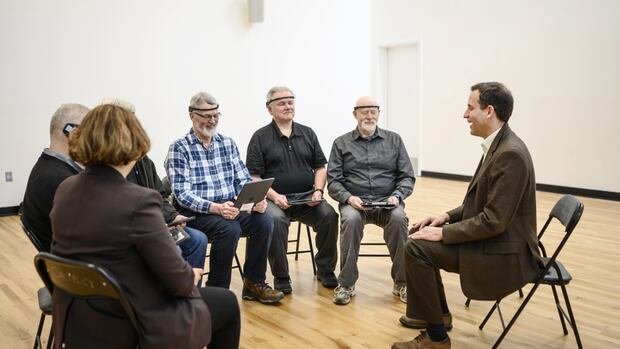A recent study revealed that providing men with daily informational support to manage the challenges of prostate cancer not only benefits their physical and mental well-being but also leads to cost savings for Nova Scotia’s healthcare system. The research psychologist and Dalhousie University professor, Gabriela Ilie, highlighted the effectiveness of the “patient empowerment program” (PEP) in improving outcomes and reducing expenses.
Introduced in 2019 by Ilie and radiation oncologist Dr. Rob Rutledge, the PEP includes various components such as pelvic exercises to enhance bladder control, tailored exercise routines, tips on maintaining intimacy post-treatment, meditation techniques, and plant-based cooking lessons. The program, delivered through six months of email videos, also offers a “buddy system” for mutual support during recovery from radiation, surgeries, and hormone therapies.
A cost-effectiveness analysis conducted between 2020 and 2022, published in the Canadian Urological Association Journal on June 13, showed that participants in the program made fewer medical visits compared to those under standard care. The study reported an average direct savings of around $661 per patient per year, considering the program costs. Participant billings averaged $1,195 over a year, while non-participants incurred about $1,856 in expenses.
Aside from cost benefits, the study noted a 31% decline in psychological distress among program participants after 12 months. Prior research on PEP demonstrated improvements in urinary function and weight loss among men adhering to the program’s video routines developed by Ilie and Rutledge.
While traditional treatments like surgery and radiation can cure prostate cancer, Rutledge and Ilie emphasized the lack of post-diagnosis support in the healthcare system, especially regarding mental health challenges faced by men. The PEP aims to address issues such as erectile dysfunction and incontinence resulting from treatment through a structured regimen and text message reminders for pelvic exercises.
Participants like Joseph Lynton, a retired psychotherapist, shared positive experiences with the program, citing increased optimism and a sense of community during the recovery process. Rutledge and Ilie have expanded the program’s reach to other cancer patients through pilot projects, seeking further funding from Nova Scotia Health’s cancer care division.
The researchers believe that the empowerment approach of PEP could have broader applications in public health systems beyond prostate cancer care. They are advocating for increased support and funding for similar patient-centric interventions to improve overall well-being during cancer treatment, as highlighted by other experts in the field.

